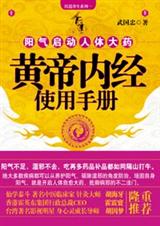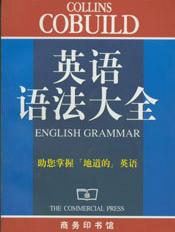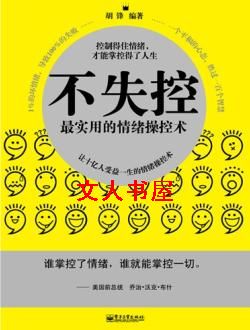牛津实用英语语法-第105章
按键盘上方向键 ← 或 → 可快速上下翻页,按键盘上的 Enter 键可回到本书目录页,按键盘上方向键 ↑ 可回到本页顶部!
————未阅读完?加入书签已便下次继续阅读!
虽说儒尔英语说得很好,我表妹一直跟他说法语以便炫耀一番。
He is always picking up very heavy things just to show off his strength.(show it off)
他常拿起很重的东西以显示自己的力气。
shut
shut down(tr/intr) 关闭(参见close down)
sit
sit back(intr) 放松,不动手,不干活:
I have worked hard all my life and now I’m going to sit back and watchother people working.
我这辈子一直努力干,现在要轻松轻松,看着别人干了。
sit up(intr) 坐着熬夜,过了点而不去睡(常指因阅读、工作或等人):
I was very worried when he didn’t e in and I sat up till 3 a.m.wait…ing for him.
他没回家,我很担心,一直不去睡而等到凌晨3点钟。
She sat up all night with the sick child.
她整夜陪着生病的孩子没有睡。
stand
stand by someone(tr) 继续支持并帮助某人,为某人撑腰:
No matter what happens I’ll stand by you,so don’t be afraid.
不管发生什么事我都支持你,别怕。
stand for(tr) 代表:
The symbol‘x’usually stands for the unknown quantity in mathematics.
在数学中,“x”这个符号常代表未知数。
stand for Parliament 竞选议员:
Mr Pitt stood for Parliament five years ago but he wasn’t elected.
皮特先生五年前曾竞选议员职位,可是没有当选。
stand out(intr) 易于看到,显眼:
She stood out from the crowd because of her height and her flaming red hair.
由于她个子高,又长了一头火红的头发,她站在人群里很显眼。
stand up for(tr) 为……辩护:
His father blamed him,but his mother stood up for him and said that hehad acted sensibly.
他爸爸责怪他,可是他妈妈为他辩护,说他做得有道理。
Why don’t you stand up for yourself?
你为什么不为自己辩护?
tand up to(tr) 抗拒,不屈服:
This type of building stands up to the gales very well.
这种建筑很能抗拒大风。
Your boss is a bully.If you don’t stand up to him he’ll lead you a dog’slife.
你的老板是个仗势欺人之辈。你要是向他屈服,他会把你欺负死。
stay
stay up(intr) 过时不睡(通常为了娱乐):
Children never want to go to bed at the proper time;they always want tostay up late.
孩子们总是不想按时上床睡觉;他们老是想晚点睡。
step
step up(tr) 增速,加快(常指工业生产等):
This new machine will step up production.(step it up)
这台新机器将使生产加快。
take
be taken aback(intr) 感到惊讶失措:
I was taken aback when I saw the bill.
我看到帐单时大吃一惊。
take after(tr)长得像(父母、祖父母等):
He takes after his grandmother;she had red hair too.
他长得像他的祖母。他祖母也是红头发。
My father was forgetful and I take after him;I forget everything.
我爸爸爱忘事儿,而我就像他。我什么都忘。
take back(tr) 收回(所说的话、指责等):
I blamed him bitterly at first but later,when I heard the whole story,Irealized that he had been right and I went to him and took back my re…marks.(took them back)
起初我痛切地指责他,但是后来当我知道了事情的全部情况时,就明白他是对的,所以我去找他收回我说的话。
take down(tr) 写下来(常指听写):
He read out the names and his secretary took them down.(took down thenames/took the names down)
他把人名念出来,他的秘书则把那些名字记下来。
take for(tr) 错认:
I took him for his brother.They are extremely alike.
我把他错认成他的兄弟了。他俩长得像极了。
Do you take me for a fool?
你难道把我当成傻子不成?
take in(tr)
(a)欺骗,骗而使信:
At first he took us in by his stories and we tried to help him;but later welearnt that his stories were all lies.
起初他编的那些故事使我们相信他了,我们还想帮助他;可后来我们听说那全是谎话。
(b)接待,收留住下:
When our car broke down I knocked on the door of the nearest house.
The owner very kindly took us in and gave us a bed for the night.
我们的汽车坏了时,我敲最近的一家人家的门。房主很好心地收留了我们,给我们一张床过夜。
People who live by the sea often take in paying guests during the sum…mer.(take paying guests in/take them in)
住在海滨的人常在夏天留游客住宿,挣一些房钱。
(c)理解,(思想上)接受:
I was thinking of something else while she was speaking and I didn’t re…ally take in what she was saying.
她说话时我在想别的事,并没有真正理解她说的话。
I couldn’t take in the lecture at all.It was too difficult for me.(couldn’ttake it in)
讲座我完全听不懂。它对我来说太难了。
(d)改窄,改瘦(指衣服):
I’m getting much thinner;I’ll have to take in my clothes.(take my clothes in/take them in)
我瘦多了,得把衣服改瘦。
take off(tr) 取下,脱下,褪去(指衣服时为put on的反义词):
He took off his coat when he entered the house and put it on again whenhe went out.(took his coat off/took it off)
他进屋时脱下了外衣,出屋时又把它穿上了。
take off(intr) (飞机等)起飞,离地升空:
There is often a spectators balcony at airports where people can watchthe planes taking off and landing.
机场常设有看台,供人们观看飞机起飞降落。
take on
(a)承担工作:
She wants someone to look after her children.I shouldn’t care to take onthe job.They are very spoilt.(take the job on/take it on)
她想找人给她照料孩子。我可不想承担这份工作。她的孩子们都被宠坏了。
(b)雇用,招工:
They’re taking on fifty new workers at the factory.
这家工厂要招收50名新工人。
(c)接受某人为对手,应战:
I’ll take you on at table tennis.
我跟你打一局乒乓球试试。
I took on Mr Pitt at draughts.(took Mr Pitt on/took him on)
我接受皮特先生的应战,跟他下国际象棋。
take out(tr) 除去,清除:
Petrol will take out that stain.(take the stain out/take it out)
汽油能除去那块污渍。
The dentist took out two of her teeth.
牙科医生给她拔去两颗牙。
take somebody out 请人到外面去吃饭娱乐:
Her small boy is at boarding school quite near here.I take him out everymonth.
她的小男孩在离这儿很近的地方上寄宿学校。我每个月带他出来吃顿饭。
take over(tr/intr) 接受,接手,接管:
We stop work at ten o’clock and the night shift takes over until the fol…lowing morning.
我们10点钟停止工作,夜班接班一直工作到第二天早上。
Miss Smith is leaving to get married and Miss Jones will be taking overthe class/Miss Jones will be taking over from Miss Smith.
史密斯小姐要离职去结婚了,琼斯小姐将接手管理她的班级。(参见hand over。)
take to(tr)
(a)开始养成习惯。它常给人一种印象,即说话人认为这种习惯是坏习惯或是有点愚蠢的习惯,但也并非一定如此。后面常带动名词:
He took to drink.
他开始喝酒上瘾了。
He took to borrowing money from the petty cash.
他开始有了从小额现款中“借”用零用现金的习惯。
(b)对某人有好感,被(某物)所吸引(特别是首次见到时):
I was introduced to the new headmistress yesterday.I can’t say I took toher.
昨天我被介绍给新来的女校长。我很难说我对她有好感。
He went to sea and took to the life like a duck to water.
他当海员去了,就像鸭子爱水一样爱上了这种生活。
(c)进入……似求逃命:
When they saw that the ship was sinking the crew took to the boats.
船员们看到船要下沉了,就上了救生船以求逃命。
After the failure of the coup many of the rebels took to the hills and be…came guerillas.
政变失败后,许多反叛的人上山打游击去了。
take up(tr)
(a)开始一种业余爱好、运动或学习(这里没有批评的意思):
He took up golf and became very keen on it.(took it up)
他玩起了高尔夫球,并且变得很热衷于其中。
(b)占有(时间或空间):
He has a very small room and most of the space is taken up by a grandpiano.
他住一个很小的房间,房间里一多半地方被一台大三角钢琴占去了。
A lot of an MP’s time is taken up with answering letters from






